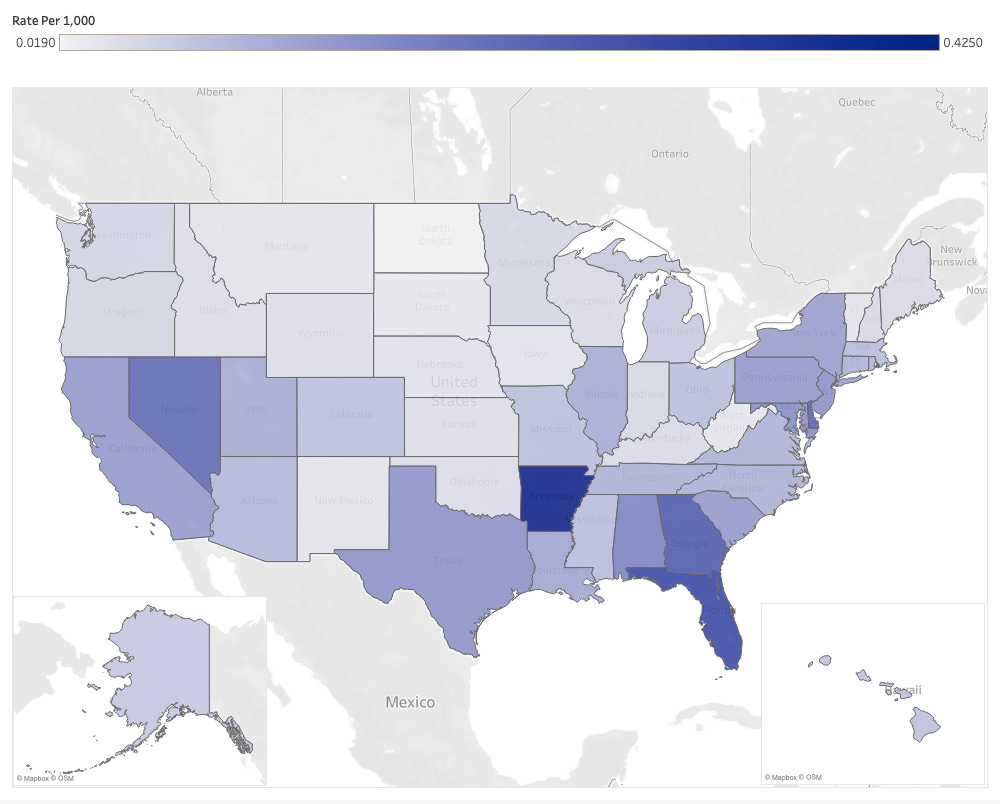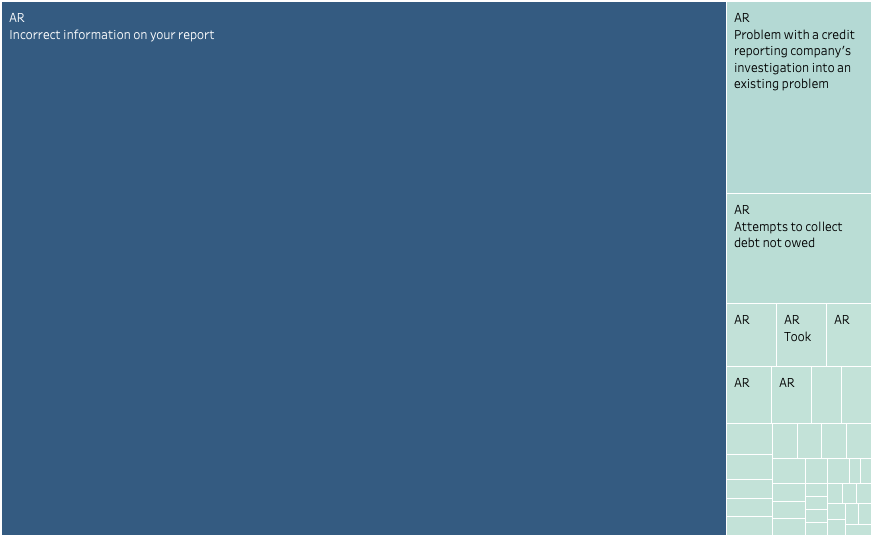Consumer Complaints in The Time of COVID-19
And how Senator Tom Cotton looks to outflank his Democratic colleagues and stoke populist flames.
We have entered into a new phase of the economic downturn that started due to the coronavirus pandemic. Each week we read figures not seen in generations in terms of unemployment filings with the current total over 31 million. It’s essential that as we move through this period we seek to understand the data which is readily available to us by our government. To embrace that attitude, we must learn what we can and discuss any errant procedures which arise as our elected officials deal with an unprecedented moment.
As lame as the rest of this sentence may be my dear reader, I must confess I really did feel a civic duty of sorts to find data that might help me understand the hardship people are feeling in this current moment. What first popped into my noggin was the Consumer Financial Protection Burea, or CFPB for short.
A brief history of the Consumer Financial Protection Bureau, this agency became the first of its kind within the United States government focused on the protection of customers within the financial services sector on July 21st, 2011. The agency was a piece of the landmark Dodd-Frank Wall Street reform, and it aimed to promote transparency and fairness in the dealings of financial services such as mortgages and credit cards. One of the main functions, to the chagrin of all data nerds, is the collection and housing of complaint information here for us citizens to browse and infer.
What I did was acquire all of the complaints from a confined period. I treated the start of our economic shutdown as the day President Trump restricted all travel, March 11th, to last week, May 10th.

The first thing to notice from the data is that slightly darker hue of blue which grips a good portion of the South. Arkansas, Florida, Georgia, and Texas are all experiencing serial upticks in the financial stress of citizens as measured by complaints against their providers.
When taking a more historical look at this data it is rare for a state to have more than two complaints per 1,000 citizens throughout the year. We see in this short time of this economic devastation the states mentioned, and others are well on their way to eclipsing numbers we are more used to seeing for consumer complaint data.

These findings, I admit are not earth-shattering. Much this analysis is straight forward and intuitive. We are experiencing mass unemployment and thus more people are checking bills for erroneous charges and fees as they drift into the red.

This consumer behavior becomes more apparent when zooming in on one particular state, Arkansas. The most numerous complaint within this time-frame was that of incorrect reporting of credit reports. In the sixty days, there were 1,400 complaints filed, that’s twenty-three a day in the state of Arkansas. Such a spike made me wonder if this were the reason I get to see one of the more intriguing young blood politicians in all of D.C.
The Junior Senator From Arkansas
Senator Tom Cotton has been out in front of more cameras than we’re used to these past few weeks. The logic makes sense, Cotton is up for re-election in November, and according to reporting from Politico the senator has already begun to run ads … in Ohio.
The ads feature messaging and attacks on the 2020 Democratic presidential nominee, Vice President Joe Biden for taking it too easy on China. That line has become a staple to Cotton, few have been as aggressive on China in the midst of this coronavirus global pandemic, going so far as to suggest banning all students from the People’s Republic.
Cotton has also taken on a different role that of being an economic populist critiquing Democratic authored bills not as large handouts in the traditional conservative mantra but labeling them as ineffective, misguided then positing his own, comparatively tame solutions. It is obvious the young man has 2024 on his mind.
More frustrating, for anyone reading this from a left perspective, is how Cotton and allies have embraced a message, and tone of affinity for working people more effectual than their Democratic colleagues. On the Senate floor and in a medium article Senator Cotten laid out his issues with the Families First Coranavirus Act.
Unfortunately, the bill’s central effort to help Americans is designed to achieve policy goals that have been overwhelmed by events. The bill is wrapped around the axle of paid sick leave — for a limited number of American workers, no less — in an effort to maintain wage continuity. But workers who need help the most won’t benefit from the House bill’s provision for paid sick leave — in particular, those who are laid off, had their hours reduced, work in the gig economy, or who find that their employers have gone out of business.
This provision must be replaced with more ambitious and more efficient measures if we truly want to serve workers who must stay at home during this crisis. The bill expands the Family and Medical Leave Act to provide paid leave to those who must miss work to adhere to a quarantine, take care of at-risk family members, or care for children who are out of school. The bill attempts to offset the cost of this provision through tax credits and efforts to advance funds to employers. Businesses would be able to use tax payments they’ve made to the IRS to pay sick leave wages. The U.S. Treasury Department also would provide cash advances to businesses that don’t have enough tax payments to draw on.
These policies are well intentioned but needlessly complicated, at a time when simplicity and speed are paramount. They also wouldn’t help companies that are put out of business by the coming crisis — tax credits don’t help businesses with no profits, let alone bankrupt companies or their newly unemployed workers. Moreover, the administrative efforts required to claim these tax credits would be substantial and complicated.
Of course, this article is written while some time has passed and many of the provisions in which Senator Cotton requested was signed into law within near unanimity. Small businesses got their loans and individuals got checks.
The bigger trouble as I see it for the establishment Democratic crowd is the sincerity of the message. Cotton’s proposals are not as far-reaching as those coming from the progressive caucus of the Democratic party. However, when compared to the dubious messaging and fatuous TV appearances from Speaker Pelosi and even Joe Biden the response of the Republican party comes off as wholehearted.
All the while, led by Cotton, the Republican party continues to criticize the power brokers of the Democratic party for a lack of action toward China. The left, led by the Squad and others continues to timidly berate their party leaders for lack of relief towards workers. Just this week Pelosi blocked a proposal to guarantee paychecks to workers modeled off of what was done in Denmark by Rep. Pramila Jayapal in the recently passed third Coronavirus relief package.
This juxtaposition of the center of American politics serves as a bad omen who hope to see the days of populism peter out. Cities continue to sprout a more left-leaning disposition than their rural colleagues and the countries conservative party flirts with nationalism while championing workers. Finding consensus, that great American political tradition, is becoming harder and harder to do, such is the malady of American politics in 2020.

